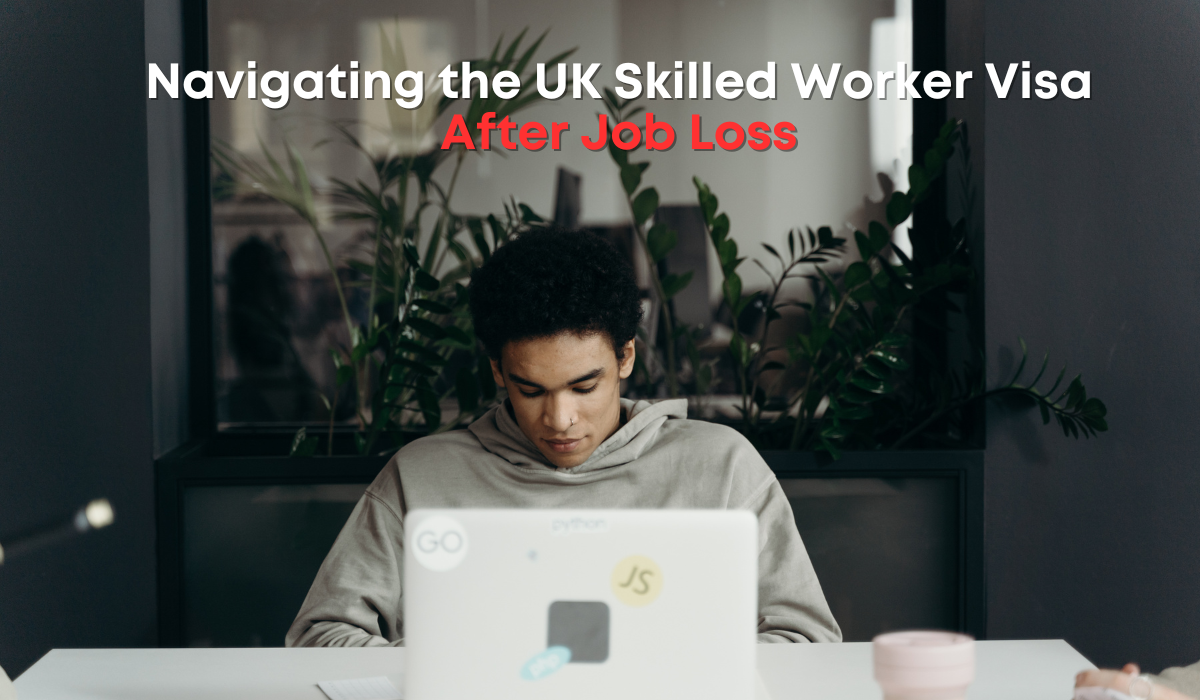If you’re working in the UK on the Skilled Worker visa (or the historic Tier 2 General worker visa), your right to remain in the UK hinges on your ongoing employment with the same sponsor in the designated role. This dependency on employment introduces a layer of complexity for workers and employers alike, especially when jobs are at risk. In this article, we’ll explore the implications of employment termination on Skilled Worker visas, the options available to you if your job ends, and the potential impacts on your long-term plans for UK settlement.
What Happens If Your Employment Ends?
Under the Skilled Worker visa, your employer’s sponsorship is essential for maintaining your immigration status. If your employment is terminated for any reason, your sponsor is required to report this change to UK Visas and Immigration (UKVI) within 10 working days. The reasons for terminating sponsorship vary, and common instances include:
- Termination or redundancy of the worker’s employment.
- Refusal of entry clearance or cancellation of permission to stay by UKVI.
- Withdrawal of a job offer by the employer.
- Absence without pay exceeding four weeks (except in specific cases).
- Loss of necessary professional accreditation for the role (e.g., GMC registration for medical professionals).
- Settlement in the UK, rendering sponsorship unnecessary.
The notification of job termination by your sponsor will trigger a cancellation or curtailment of your visa, often giving you a 60-day window or until the visa’s original expiration date—whichever is shorter—to decide your next steps.
Deciding Your Next Steps: How Much Time Do You Have?
Once you receive the letter from UKVI notifying you of visa curtailment, the 60-day countdown typically begins. During this period, you must either secure a new sponsorship, switch to another visa category, or make arrangements to leave the UK.
In rare cases, UKVI may cancel your visa immediately, often for severe circumstances, so it’s crucial to understand the timeline and act quickly.
Finding Alternative Options to Stay in the UK
For many, finding another UK-based job that meets the requirements of the Skilled Worker route is the preferred option. However, several other visa categories may also be available depending on your skills, career path, and personal circumstances:
- Switching Employers on the Skilled Worker Visa: If you secure a job offer with another licensed sponsor, you can continue on the Skilled Worker route. Your new employer must issue a Certificate of Sponsorship, and the role must meet skill and salary requirements.
- Global Talent Visa: If you’re recognized as a leader or emerging talent in fields like science, engineering, digital technology, or the arts, the Global Talent route might be viable. This visa is competitive and requires endorsement but provides flexibility and independence from employer sponsorship.
- Scale-Up Visa: Available to skilled individuals joining high-growth UK businesses with Scale-Up sponsor status, this visa requires a high-paying job and sponsorship for the first six months but allows more freedom thereafter.
- Innovator Founder Visa: For entrepreneurs with innovative, scalable business ideas, the Innovator Founder route can be an option. Applicants need endorsement and must present a viable business plan that contributes to the UK economy.
- Personal Immigration Routes: If you have a spouse, partner, or family ties in the UK, you may consider visas based on these relationships, such as the spouse or unmarried partner visa. Additionally, a student visa could be an option for those pursuing further education.
Can You Stay on the Skilled Worker Route by Setting Up a Business?
Yes, an increasingly popular approach is self-sponsorship. Skilled Worker visa holders can set up a UK-based business with a sponsor license, allowing them to sponsor their own visa under strict regulations. This path demands that the business meets the visa requirements for sponsorship and employs the applicant in a genuine role that aligns with the Skilled Worker criteria.
Does This Impact Your Indefinite Leave to Remain (ILR) Prospects?
For many workers, achieving indefinite leave to remain (ILR) is a significant milestone, offering freedom from employment-based visa requirements. Under current rules, you can apply for ILR after five years of continuous residence in the UK as a Skilled Worker or Tier 2 (General) worker. This time can also include other routes that contribute toward settlement.
If you intend to switch to a different visa route, note that not all categories will count toward ILR under the Skilled Worker route. Some visas, such as long-residence visas or those based on family ties, may also offer paths to settlement, but it’s wise to confirm how your time on each visa category aligns with ILR requirements.
Can You Travel While Awaiting a New Visa Decision?
When considering travel, timing is crucial. If you have an ongoing immigration application, it’s generally advised to avoid leaving the UK as this may complicate re-entry. UK border officials may have access to records indicating your sponsorship status, which could create re-entry issues if your employment has ended. If re-entry is a priority, ensure your visa status is clear and understand that using e-gates may automatically classify you as a visitor, impacting your employment rights.
You may, of course, choose to leave the UK permanently or until you secure new entry clearance. However, to avoid overstaying penalties, ensure you depart before your visa expires.
Next Steps for Employers: Ensuring Compliance
Employers bear significant responsibilities when employing Skilled Workers, particularly in cases of job termination. Ensuring accurate reporting within the 10-day timeframe is not only a legal requirement but is also essential for retaining sponsor status. Employers must also be aware of compliance duties regarding offshore workers, role changes, and employment adjustments for sponsored workers.
Get in touch: For a comprehensive understanding of your options or queries on UK immigration matters, contact GigaLegal Solicitors at 02074067654 or click here to book a no-obligation consultation with an immigration expert.


